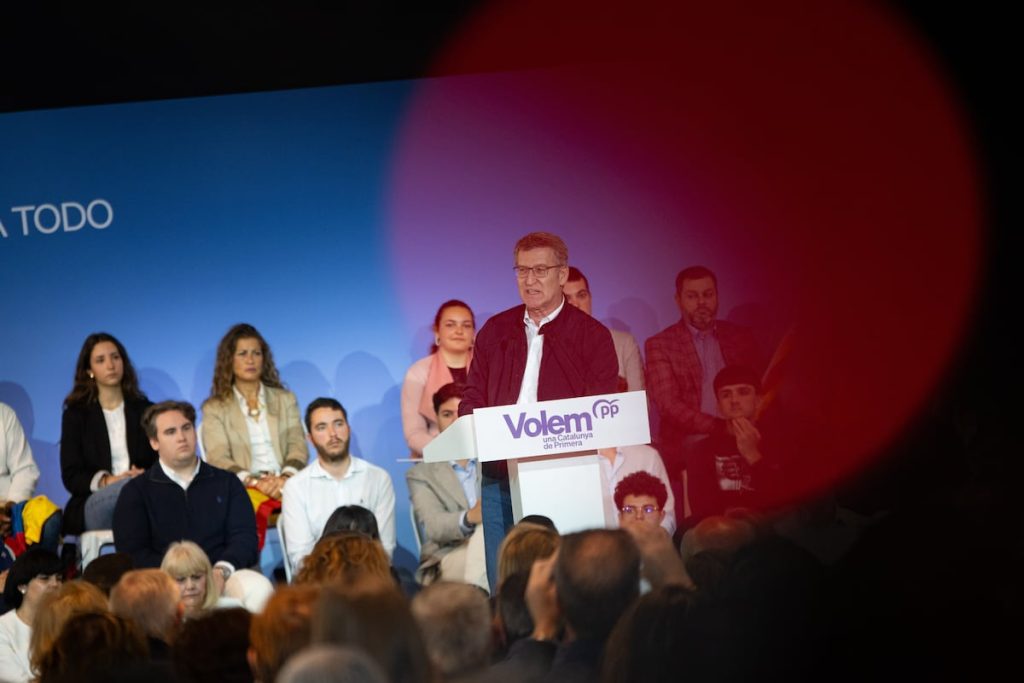The PP continues to lean towards the belief that Pedro Sánchez will not resign on Monday. However, the Popular Party is trying to convey the idea that the President’s change in direction with his “letter to the citizens” signifies the end of his tenure at La Moncloa. The popular aim to exploit what they perceive as Sánchez’s weakness with his period of reflection, with Alberto Núñez Feijóo leading the charge since Wednesday by emphasizing the rift created by the Prime Minister. Feijóo, during a campaign event in Lleida, stated that regardless of what Sánchez says, he will be forever marked by the decline he has brought to the country, asserting that politicians representing the past are indeed part of the past.
As Sánchez prepares to announce his next steps, the atmosphere within Feijóo’s inner circle remains one of astonishment. The PP leadership continues to doubt that Sánchez will resign, but they see the calling of general elections as inevitable if he does. During a campaign event in Lleida, Feijóo positioned himself as a candidate for La Moncloa, echoing the sentiment expressed by the party’s general secretary, Cuca Gamarra, that it is time to secure the country’s future in the face of a PSOE that can no longer guarantee it. Feijóo did not just present himself as a suitable successor to Sánchez, but also took the opportunity to criticize the President, referring to Sánchez’s uncertainty about whether it is worthwhile to continue due to attacks on his wife, Begoña Gómez.
The latest electoral barometer from the Centre d’Estudis d’Opinió (CEO), the Catalan CIS, predicts that the PP would be the fourth force in the elections on May 12, with between 8-12 seats. The PP does not want to make numerical calculations to avoid raising expectations, but a significant increase is expected compared to the disastrous result of three seats in 2021. The letter from Sánchez is seen as beneficial for the PP in Catalonia, as it nationalizes the campaign and sets up a direct battle between PSOE and PP, possibly overshadowing the campaign of the PSC candidate, Salvador Illa, focused on stability and reliability.
Feijóo has criticized Sánchez’s narcissism and compared him to Carles Puigdemont, the Junts candidate. The PP also believes that Illa, the PSC candidate, will potentially give his votes to the independence movement in order to keep Sánchez in power. Feijóo and other PP members in Catalonia see Sánchez’s turnaround as an opportunity to push forward in their own campaign. They view the support rally held at the PSOE headquarters in Madrid as a farce, with Fernández calling it an absurd spectacle. Feijóo also reaffirmed the PP’s openness to all Catalans and to the future, reiterating the need for a change in leadership at La Moncloa.
In the midst of this political turbulence, the PP continues to position itself as the alternative to the current government, suggesting that Sánchez’s tenure has brought decline and instability to the country. The upcoming weeks will likely see a further escalation of tensions and power struggles, as both parties vie for control and dominance. The outcome of Sánchez’s announcement and the subsequent actions of the PP will determine the course of Spanish politics in the coming months, shaping the landscape of the country’s future governance. As Feijóo and the PP assert themselves as the voice of change and renewal, the political landscape in Spain appears poised for a period of uncertainty and transformation.















